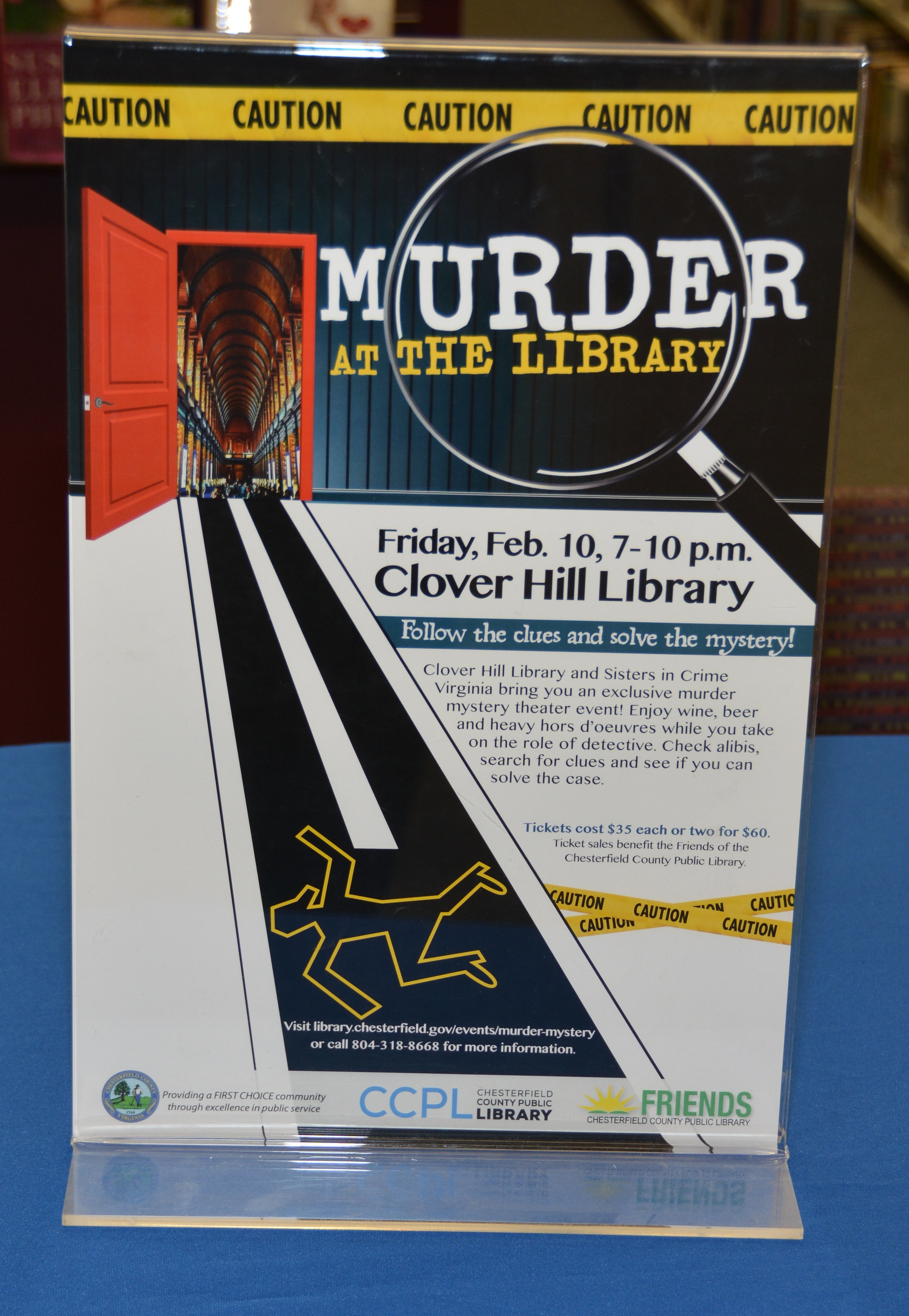Collaborating on a Mystery Party Script
/For the past few years, my Sisters in Crime chapter volunteers have been asked to write a script for our library's fundraiser. We write the script, and the very talented librarians and staff bring the play to life. On the night of the event, the guests are divided into two groups. One views the mystery clues, and the other attends an author panel. They switch. Then there's time for the guests to interview the actors and look for clues. Afterwards, there is the big "who dunnit" reveal and a book signing.
The first two years, we killed off the head librarian and the children's librarian. The next event has even more surprises. I met with Mary Miley and Rosemary Shomaker yesterday to create the characters and plot the murder. The collaboration was a lot of fun. Writing is usually a solitary sport, and it was neat to bounce ideas and motives off each other. I just hope the folks in the next booth didn't think we were plotting a real murder.
This event has sold out in the previous years. And it is such a thrill for me to see something we created brought to life. The actors do such a good job of filling out the characters and making the scenario seem realistic. Each guest gets a handout with a list of all the characters and room to make notes. At the end, they vote on who they think the guilty person is.
Here are some things we do to prepare the script.
- Work with the library's planning team to get an idea of themes and interests for the event.
- Come up with the crime (usually a murder) and build clues around it. It needs to be something that can be done either on or off stage. (The first year, the guests were invited to an event, and they arrived to find the police investigating the head librarian's murder. The next year, the guests were attending a concert by a popular children's musician, and there was a murder.)
- Create an interesting/zany cast of characters. Each character needs to have some distinguishing characteristic that the actors can exploit.
- Name the characters so that there's not confusion about who did what. You don't want a Kevin, Kyle, and Kurt.
- Think of characteristics or props that the actors can use. The planning team seeds the library with clues and red herrings.
- Make sure that every character has some combination of means, motive, or opportunity. The guilty one should have all three.
- Ensure that there are ways for the audience to get the clues they need (e.g. through action, dialogue, or questioning the suspects).
I'm looking forward to the next murder mystery evening. I can't wait to see what the actors do with our latest script.


























